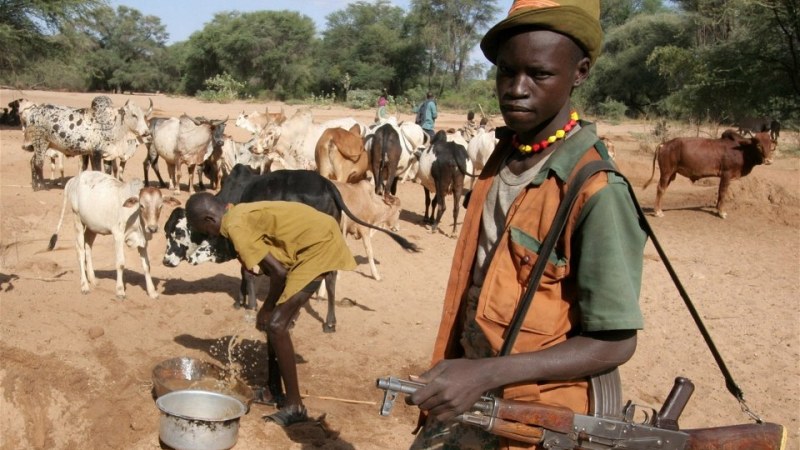Comments and Issues
Wading into the Oba-Emir Debate
Published
8 years agoon
By
Olu Emmanuel
I have watched with deep awe the needless controversy generated by the Oluwo of Iwo, Oba Abdulrasheed Adewale Akanbi’s declaration few days back where he said he could be regarded or called an Emir. First, it is important to state here that the writer has no cause whatsoever to defend the Oluwo or his purported statement; neither is this write-up intended to join the bandwagon which has consistently lampooned or commended the monarch’s ‘unfamiliar’ position. The intervention here is basically aimed at setting some of the records straight to assist as many as possible on the need to understand the reasons behind some of the actions taken by the Oluwo in recent times, particularly as it relates to Islam.
Since his installation as Oluwo in 2015, Oba Akanbi’s actions or rhetoric in connection with his Islamic belief, on the one hand, and the role the kingship institution plays in it, on the other hand, has not surprised a few. Three examples suffice here. In 2016 during the popular Eid-el-Fitri, the Oba assumed the role of the town’s Chief Imam and led Muslim faithful in prayer. While this action was criticised by a few, it was evident to others who understood Iwo history that the Oluwo was simply exercising a spiritual/religious duty historically imposed on the kingship institution. In late 2017, during an interview with a national daily, Oba Akanbi was quoted to have said that he relocated elsewhere in the town a popular Orisa which had been in the palace for over 800 years. When asked why, he attributed his action to his status as alase lori orisa (an authority over the gods) and because as a king, he was supposed to be a subject of God and not an idol. Lastly, in the same interview, the Oluwo was asked to state whether he performed some rituals or rites before ascending the throne. The first class monarch claimed that some rites had to be jettisoned because they were not in tandem with his religious belief. Though several other interesting instances could be alluded to, it is obvious from the above that Oba Akanbi’s vantage points or reactions to most issues are heavily guided by a key manifestation – Islam. How?
Southwest Nigeria is replete with a number of Yoruba towns which had embraced Islam dating back to the mid-1800s. This is not the case with Iwo for several reasons. Islam came into Iwo through the palace and the first king to have led the Eid prayer was Oba Oderinlo popularly called Oba Alawusa. This was as far back as the 18th century. Incidentally, Iwo, more than any Yoruba town in history, aside old Oyo, had made early contact with Islam which dates back to the 1600s where a mosque was erected in the year 1650. Narrations suggest that the site of the mosque today referred to as Mogaji Oba mosque located very close to the Oluwo’s palace, still exist.
From the 1850s, Iwo witnessed one of the exacting Islamisation processes in Yorubaland. The newly installed king, Oba Momodu Lamuye began to Islamise not only the kingship institution but also all facet of Iwo life. Every home and compound was made to erect a mosque while all palace chiefs were required to become Muslims. Iwo was so entrenched in Islam that when Reverends Meakin and Hinderer of the Church Missionary Society arrived Iwo in the 1850s, and after over thirty years in the town, described it as impregnable. James Johnson, another missionary in perplexing frustration, observed how Iwo Muslims rejected missionary education that was to form part of the evangelization in the town. In fact, while other Yoruba towns had welcomed Christianity into its fold in the late 1800s, Iwo frustrated this effort until 1920. Dramatically, the deep connection Islam has with Iwo kingship institution is indicative of the Turbaning ceremony carried out on all Oluwo since the 18th century. It should, therefore, not be a surprise that the current Oluwo, like Oba Lamuye (1859-1906), wears a turban today which is a dress code not unfamiliar with the palace. What this suggests is that Iwo has a centuries-old relationship with Islam that appears rigid and explains why boundaries are often set when threats to that rigidity are triggered. The hijab crisis in Iwo is a very potent reminder of this sort of threat and to be reassured that Islam remains the religion of the town, the kingship institution must as a necessity renew its religious pledge to reaffirm those boundaries.
The history of Islam in Iwo, like a few Yoruba Muslim towns, is the history of its kings’ compelling desire to make the town an ‘estate of Muhammed’. Because the Oluwo holds dual spiritual powers (traditional and Islamic), on the one hand, and temporal powers, on the other hand, the religious agencies in the town generally subsume their powers to him. We are not unaware of the vacuum created in respect to the office of the Chief Imam during Iwo’s interregna in the 1980s and late 2000s, because the Oluwo, being the consenting authority, appoints the spiritual leader of the town and has such overwhelming powers to depose him. Therefore, had the League of Imams and Alfas understood fittingly this practical historical dynamics which often comes to play within the context of Iwo’s traditional and religious institutions, its recent letter to the Oluwo requesting him not to appoint a Waziri would not have arisen.
While the religious demography may have changed a bit in Iwo today, a century and 16 years ago, religious orders would have thread carefully. The suggestion that the Oluwo could be called an Emir may not be out of place if we take its strict meaning and attachment to Islam into consideration. The Muslim Students Society of Nigeria and over a hundred Muslim social movements today have spiritual heads who are referred to as Amir, a term which would later become localised and called Emir today. The Emir title in parts of the North may be lesser in rank to the Sultan and that it is a common title held by the former does not suggest exclusivity; neither does it de-emphasise the Oba title common among Yoruba monarchs which the current Oluwo proudly embraces. The decision to take on the Emir title should, hence, not have become a subject of debates in the first place if it is assumed that an Emir is nothing more than a Muslim leader.
It would seem to some that in re-enacting these historical dynamics, the Oluwo may not have fittingly expressed them which explains, therefore, why a few find the king’s rhetoric offensive or scandalous. That Iwo is popularly referred to as Iwo oni Kurani (Iwo land of the Qur’an) or Iwo gerin malami (Iwo land of scholars) suggest that the town had always been an estate of Islamic scholarship and bastion of Muslim evangelism. It would, hence, not be erroneous if the Oluwo is identified as an Emir so long such title is understood within the ambit of his religious headship over the entire Muslim community in Iwo and as far as it aims to reaffirm Iwo’s Muslim identity which dates back over four centuries.
Raheem Oluwafunminiyi, an independent researcher lives in Lagos and wrote via [email protected]
You may like
Trending

 Entertainment5 days ago
Entertainment5 days agoSimi addresses resurfaced 2012 tweets amid online backlash

 Health1 week ago
Health1 week agoSCFN, LUTH introduce bone marrow transplants as curative treatment for sickle cell

 Health4 days ago
Health4 days agoDeclassified CIA memo explored concealing mind-control drugs in vaccines

 Football1 week ago
Football1 week agoHarry Kane nets brace as Bayern edge Frankfurt 3–2 to go nine points clear

 Football1 week ago
Football1 week agoLate Flemming header stuns Chelsea as Burnley snatch 1–1 draw at Stamford Bridge

 Crime4 days ago
Crime4 days agoSenior police officers faces retirement after Disu’s appointment as acting IGP

 Education6 days ago
Education6 days agoPeter Obi urges JAMB to address registration challenges ahead of exams

 Crime1 week ago
Crime1 week agoTwo killed, seven injured in early-morning shooting in Richmond’s Shockoe Bottom




